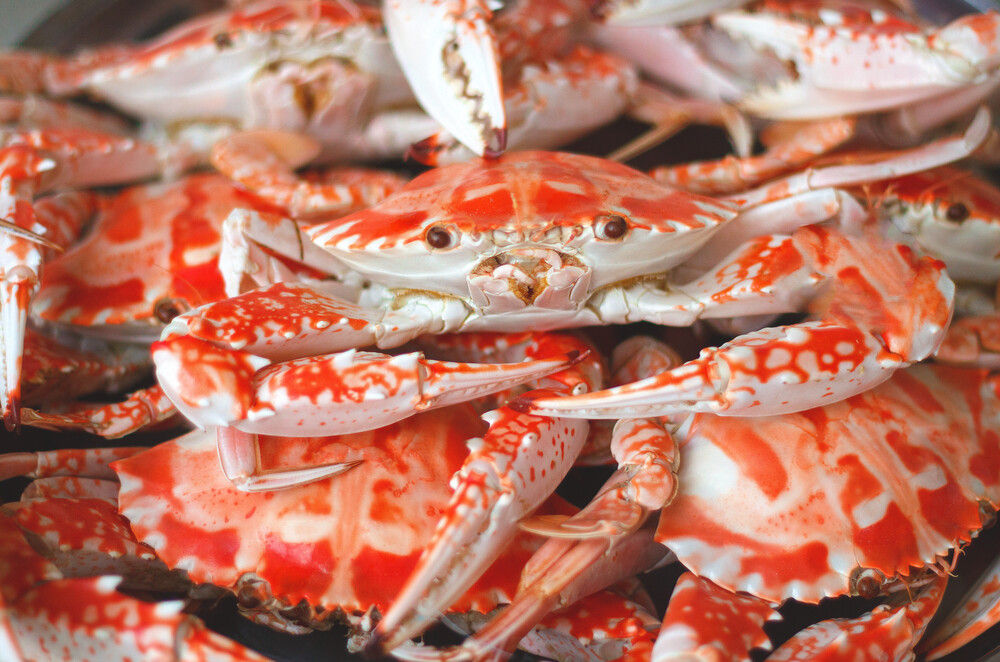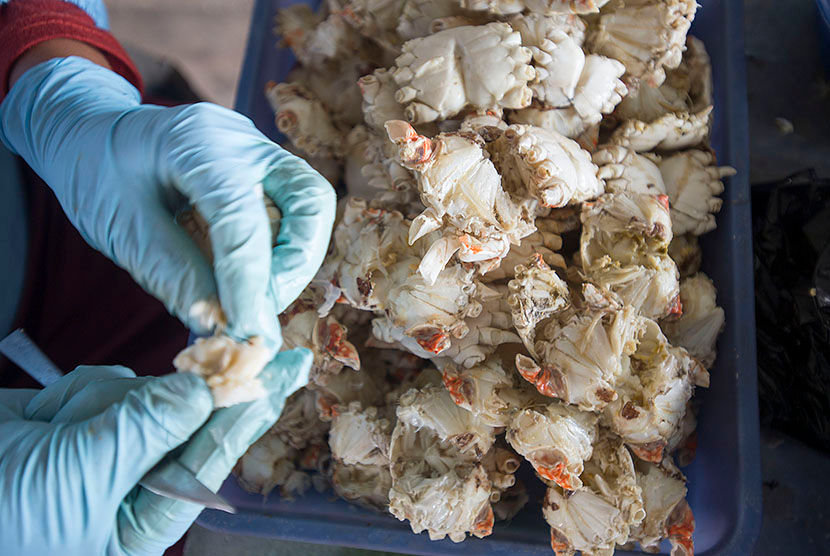Empowering the Environment with Kaltim Fertilizer Chitosan Program from Crab Shell Waste

Indonesia is a maritime country that has very abundant marine and fisheries resources. Indonesia's fisheries sector plays a good role in meeting world food needs.
One of Indonesia's leading exports is processed crab and crab products. The Ministry of Maritime Affairs noted that the export value of crabs increases every year.
The increase in exports has an impact on the volume of crab which continues to rise. Increased production will be followed by an increase in the amount of waste produced. The increase in crab shell waste will have an impact on the environment if not handled properly.
Utilizing crab shell waste is a solution to overcome environmental problems as well as an effort to reduce the ever-increasing volume of waste.
Creates a Valuable Product from Waste
PT Pupuk Kalimantan Timur (Pupuk Kaltim) is committed to prioritizing Environment, Social, and Governance (ESG) principles in the company's business activities. This is realized through various environmental improvement and community empowerment programs.
One of them is presenting innovation in processing crab shell waste into liquid chitosan fertilizer with the concept of sustainable empowerment. This innovation started in 2018 by forming the Cangkang Salona Group in the Selambai coastal area, Loktuan Village, Bontang.
This group empowers housewives and local youth to sort crab and crab shells before processing them into liquid chitosan.
Provides Training and Economic Opportunities
Pupuk Kaltim President Director Rahmad Pribadi said that the liquid chitosan innovation program started from the relatively high production of marine waste in the coastal area of Bontang City. Local people who work as fishermen only sell the results of sorting crab with the remaining shells being thrown away.
The accumulation of waste is also based on a traditional mindset which assumes that throwing shell waste into the sea can break down the material naturally. In reality, this actually causes sedimentation, causing an increase in water volume and shallowing of the seabed.
Seeing this condition, Pupuk Kaltim has taken the role of changing the community's mindset by intensifying education to encourage collective awareness to manage waste more responsibly.

According to him, one of the reasons for the strong culture of throwing waste into the sea is because management is difficult and there is no potential for developing other products from the waste products.
Realizing this, Pupuk Kaltim made a breakthrough through the Social and Environmental Responsibility (TJSL) program by utilizing crab and crab waste that piles up every day for disposal.
The target group which initially had 10 members, collects raw materials from unused crab shell waste every day by collectors around the Selambai area.
Gradually, Pupuk Kaltim provides assistance and skills training for group members in managing crab and crab waste to then be processed into chitosan products.
This Initiative Reflects Pupuk Kaltim's Strong Commitment to Environmental, Social, And Governance (ESG) Principles in Its Business Practices
This is also based on the fact that many of Pupuk Kaltim's partners are involved in the marine sector, and some of them sell processed crab and shrimp products which are also not orderly in managing waste.
"In accordance with ESG commitments, Pupuk Kaltim is also trying to change the community's mindset to be more responsible in managing waste, and not throw the rest of the catch back into the sea," said Rahmad Pribadi in his official statement, Monday (10/7).
In order to maximize the program, Pupuk Kaltim has also prepared processing infrastructure which will start production in 2021. In one month, this production house is able to process 150 kg of crab waste with an average yield of 60 kg in the form of chitin. Of this total, approximately 40 liters of chitosan were produced.
This product has also received a patent in the form of adding acetic acid (CH3COOH) as a solvent for chitosan to become liquid fertilizer, as well as a UKL-UPL permit from the Bontang City Environmental Service (DLH) for production activities.
Pupuk Kaltim also involved various parties in the process of testing the effectiveness of chitosan, such as the Testing Laboratory of the Indonesian Biotechnology and Bioindustry Research Center (LP-PBBI) and Mulawarman University Samarinda.
"Apart from that, Pupuk Kaltim also carries out continuous testing, to ensure products meet quality standards and are effective in stimulating plant growth," continued Rahmad.
Pupuk Kaltim's Dedication Recognized by Winning the 2023 Asia Responsible Enterprise Awards (AREA) in the Social Empowerment Category
Until now, the Salona Shell group has reduced crab shell waste by up to 920 kg. The liquid fertilizer product with the brand name Kitosan Salona has also passed the quality test, and is considered effective in increasing plant growth productivity from the start of growth. Including being able to reduce the intensity of pests and diseases.
This program also led Pupuk Kaltim to win the 2023 Asia Responsible Enterprise Awards (AREA) in the Social Empowerment category. The event will be held in Phnom Penh, Cambodia on June 30, 2023. (Nisa)
